What is the unit of measurement primarily used to measure distances within our solar system? (The average distance between the Earth and the Sun.)
Astronomical Unit (AU)
What characteristic do we use to determine the surface temperature of stars?
Color
What is the region of space between the orbits of Mars and Jupiter where most of the asteroids in our Solar System are found orbiting the Sun?
Asteroid Belt
What is the imaginary line that runs through the center of the Earth, connecting the North and South Poles on which Earth rotates?
Axis
What is the positioning of the Sun, Earth, and Moon during a Solar Eclipse?
Sun - Moon - Earth
What is the unit of measurement to measure extremely vast distances in space? (Includes distances between stars, galaxies, and other celestial objects.)
Light-Years
What is the measurement of how bright a star appears from planet Earth?
Apparent Magnitude
What is an object in space that orbits another object in space? It can be a natural celestial body like the Earth's moon or a man-made object launched into orbit for various purposes.
Satellite
What is caused by the Earth's tilt, along with its positioning of where it is located revolving around the Sun?
Seasons
What is it called during the lunar cycle when the moons light "grows" and "shrinks"? (2 answers must be in correct order!)
Waxing & Waning
What is the name of the galaxy that our solar system is part of? What is the shape of our galaxy? (2 answers)
The Milky Way Galaxy, Spiral
What is the actual amount of light a star emits, regardless of its distance from us. It's a measure of the star's true brightness or energy output. (Luminosity)
Absolute Brightness
What is a cold mixture of dust and ice that develops a long tail of light as it approaches the sun?
Comet
Because it takes 365.25 days for the Earth to revolve around the Sun, what do we have every 4 years on February 29th?
Leap Year
What is the name of this moon phase? (dreamworks fishing guy)
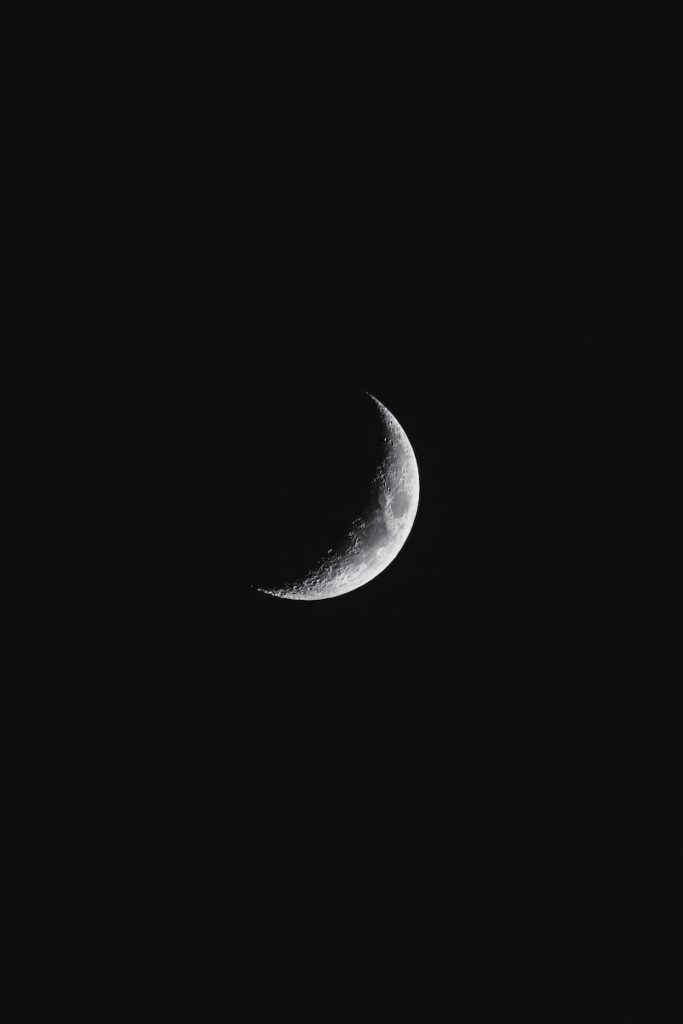
Waxing Cresent
What are the most important factors when calculating the gravitational force between two objects?
(2 answers)
Mass & Distance
What are cooler, darker areas on the Sun's surface caused by intense magnetic fields?
Sunspots
What is the criteria describing?
1. orbits the sun
2. is large enough to have become rounded by its own gravity
3. Have clear orbit of all other objects
Planets
What season are we in when the northern hemisphere is tilted towards the sun and southern hemisphere is pointed away?
Summer
What is the name of this moon phase? 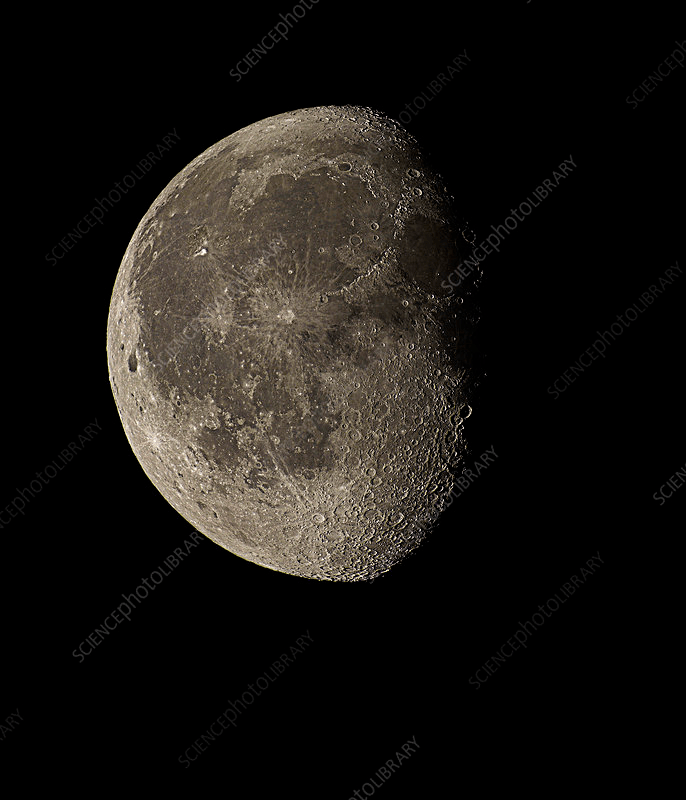
Waning Gibbous
The points labeled on the chart below represent the approximate size of Earth, the Milky Way, the Moon, and the Sun. The approximate size of the solar system is also shown. Which letter on the chart best represents the approximate size of the Sun?
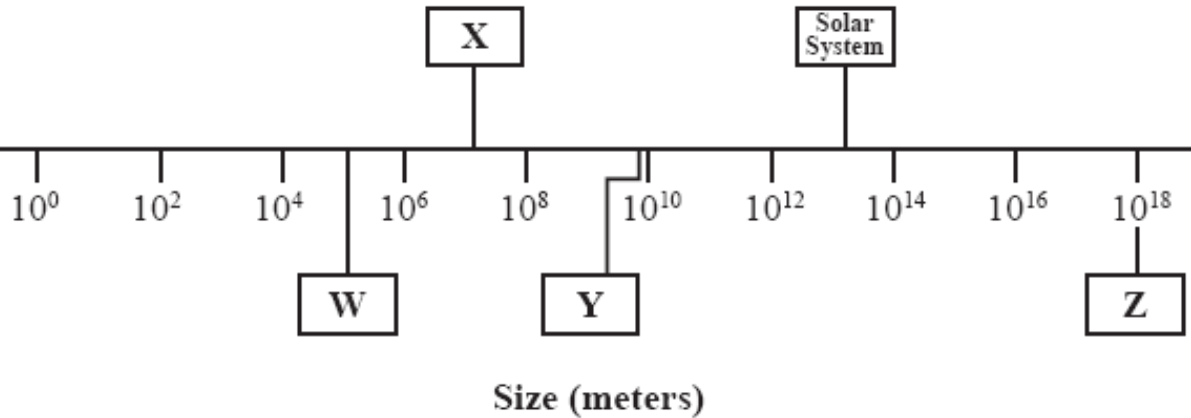
Y
What is an intense bursts of electromagnetic radiation from the Sun, often occurring near sunspots, that can release tremendous amounts of energy looping back around forming a ring-like shape?
Prominence
Why is Venus the hottest planet in our solar system, even though it is not the closet to the Sun?
Thick, carbon dioxide-rich atmosphere, which traps heat and raises surface temperatures close to 900 degrees. (greenhouse effect)
How does the tilt of Earth’s axis influence the inverse relationship on the graph?
(The solid black line is temperature in Northern hemisphere and the dotted line is temperature in Southern hemisphere)
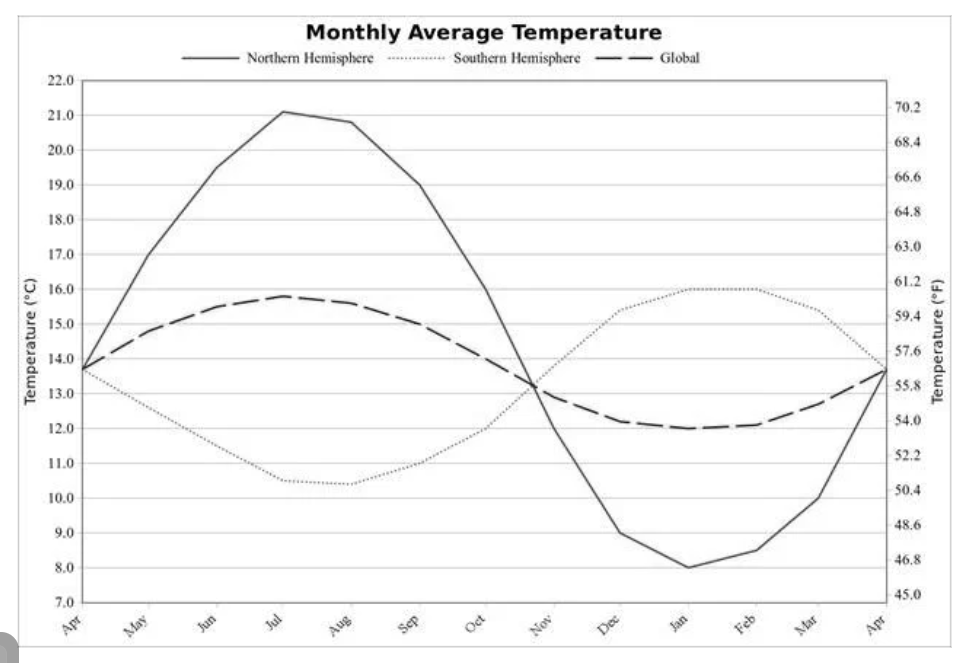
Because of the Earth's tilt, the northern hemisphere experiences summer in June/July, when the southern experiences summer in January/February.
Which of the following dates did the coastal regions experience the highest high tide?
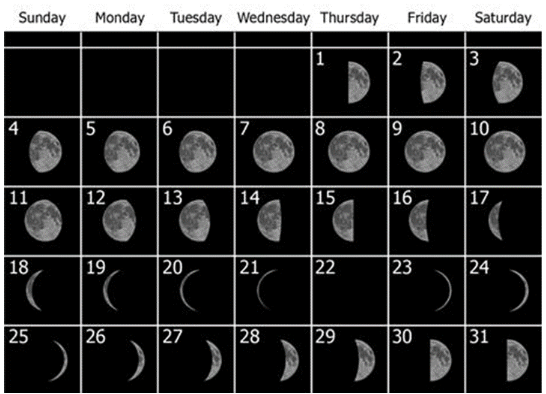
a. March 1, 2012
b. March 5, 2012
c. March 10, 2012
d. March 30, 2012
C. March 10